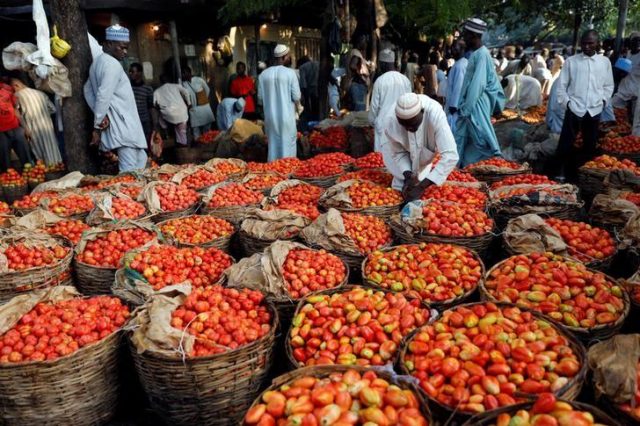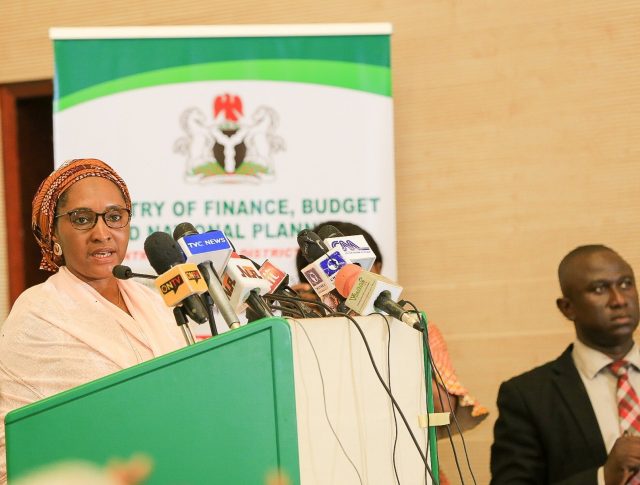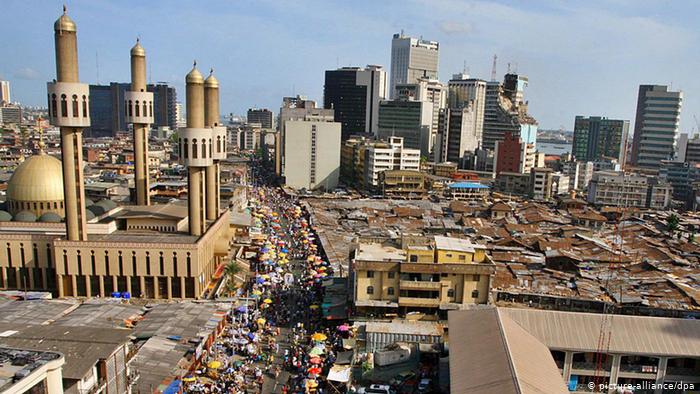Nigeria’s National Bureau of Statistics (NBS), on Saturday morning, published its report confirming that the economy, as expected, slipped into a recession for the second time since 2016, with a Gross Domestic Product growth rate of –3.62% year-on-year in real terms in the third quarter of 2020.
The figure though indicative of a second consecutive quarter of negative GDP growth, was however a 2.48% improvement over the -6.1% reported in the previous quarter (2020Q2). The marginal improvement was anticipated, as the economy gradually picked up after several months of lockdown imposed by government to check the spread of the Coronavirus pandemic that continues to ravage the world.
“Cumulative GDP for the first 9 months of 2020 therefore stood at -2.48%,” Dr. Yemi Kale, the nation’s Statistician-General, noted via his Twitter handle.
“The performance of the economy in Q3 2020 reflected residual effects of the restrictions to movement and economic activity implemented across the country in early Q2 in response to the COVID-19 pandemic. As these restrictions were lifted, businesses re-opened and international travel and trading activities resumed, some economic activities have returned to positive growth. A total of 18 economic activities recorded positive growth in Q3 2020, compared to 13 activities in Q2 2020,” the report noted.
Aggregate GDP for the period, the NBS added, stood at N39.089tr in nominal terms, 3.39% higher when compared to the corresponding period of 2019 which recorded an aggregate of N37.806tr.
It was, “however, lower relative to growth recorded in the third quarter of 2019 by –9.91% points but higher than the proceeding quarter by 6.19% points,” the report added.
According to a breakdown of the data, perhaps due to the interest shown in the sector by the government and private sector players as shown in the donations arising from COVID-19, human Health & Social Services GDP grew by 2.82%, compared to 1.89% in Q2 2020 & 0.86% in Q3 2019.
Education GDP contracted by -20.74%, as students remained at home due to the pandemic, compared to -24.12% in Q2 2020, compared to the 1.19% growth it recorded in Q3 2019; Administration & Support Services GDP contracted by -1.21% in Q3 2020 compared to -2.39% in Q2 2020 and 3.05% in Q3 2019.
While Information & Communication under Services GDP grew 14.56%, down from 16.52% in Q2 2020, but significantly better than 9.88% in Q3 2019; even as Telecoms real GDP grew by 17.36% compared to 18.1% in Q2 2020 & 11.3% in Q3 2019.

Insurance under Finance & Insurance GDP contracted by -18.67% in Q3 2020 compared to -29.53% in Q2 2020 & 3.96% in Q3 2019; faring better than the Real Estate GDP that contracted by -13.4% in Q3 2020 compared to -21.9% in Q2 2020 & -2.31% in Q3 2019.
Oil GDP contracted by -13.89%, double the -6.63% of Q2 2020; as against 6.49%% in Q3 2019; while oil refining under Manufacturing GDP contracted by a significant -68.29%, compared to 67.66% in Q2 2020, or -30.77% in Q3 2019.
Manufacturing under Industry real GDP contracted by -1.51%, compared to -8.78% in Q2 2020 & 1.10% in Q3 2019; Quarrying & Other Minerals under Mining & Quarrying real GDP constricted by 41.81%, compared to -6.39% in Q2 2020 & -14.02% in Q3 2019.
Air Transport, under Transportation and Storage real GDP contracted by -38.86%, improving from -57.38% in Q2 2020; in 2019Q3, it grew by 15.23%; Water Transport under Transportation and Storage real GDP was down by -17.37%, as against -28.33% in Q2 2020 & 1.19% in Q3 2019.
Construction, under Industry real GDP grew by -2.84% compared to -31.77% in Q2 2020 & 2.37% in Q3 2019; Food & Beverage under Manufacturing real GDP grew by 5.57% compared to 3.01% in Q2 2020 & 2.98% in Q3 2019; just as Services real GDP contracted by -5.49% compared to -6.78% in Q2 2020 & 1.87% in Q3 2019.
Cement under Manufacturing real GDP however grew by 11.96%, compared to -5.54% in Q2 2020 & 6.87% in Q3 2019; while Industry real GDP contracted by -6.12% compared to -12.05% in Q2 2020 & 3.21% in Q3 2019.
Agric real GDP grew by 1.39% compared to 1.58% in Q2 2020 & 2.28% in Q3 2019 but could have been far better, but for the spate of insecurity worsened by activities of herders destroying farmlands across the country, and insurgency in the north, among others.

Analysts believe policy change by government can help the economy grow by 6% and more, for the country to emerge from its spiral of poverty.








